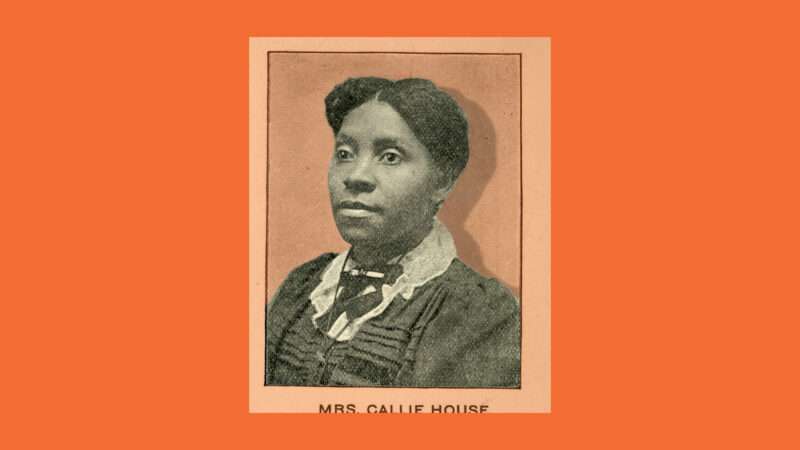
The U.S. government imprisoned a former slave and pioneering civil rights activist named Callie House in 1917 on bogus federal mail fraud charges. A group of modern scholars and civil rights activists are now urging President Joe Biden to right that historical wrong by issuing a posthumous pardon to officially clear House's name.
House was one of the leaders of the Ex-Slave Mutual Relief, Bounty & Pension Association. Formed in 1897 and based out of Nashville, Tennessee, the organization pushed for federal legislation that would compensate formerly enslaved Americans for the stolen fruits of their labor. As the historian Miranda Booker Perry has explained, "in the late 19th century, the idea of pursuing pensions for ex-slaves—similar to pensions for Union veterans—took hold. If disabled elderly veterans were compensated for their years of service during the Civil War, why shouldn't former slaves who had served the country in the process of nation building be compensated for their years of forced, unpaid labor?"
A number of powerful figures within the federal government, including the Justice Department, did not like the sound of that. So the feds used their control over the mail to harass and ultimately derail this organization. House "was accused of sending misleading circulars through the mail, guaranteeing pensions to association members, and profiting from the movement," Perry noted. "She denied ever assuring members that the government would grant pensions or that a law had been passed providing pensions for ex-slaves. There was also no evidence that she profited from the movement."
That lack of evidence apparently did not trouble the all-white jury that convicted House of federal mail fraud and sentenced her to a year behind bars. That spurious felony conviction is still on the books, officially marring her good name.
Which is where the petition for a posthumous pardon by Biden comes in. Speaking to Harvard Law Today, Harvard law professor Ronald S. Sullivan Jr., one of the driving forces behind the petition, argued that this is "an opportunity to undo an injustice. There were innumerable injustices during slavery and during Reconstruction and beyond, and there are precious few opportunities to right those wrongs. This is one—one in which the President of the United States, under Article II, Section II, paragraph one of the Constitution, has the power and authority to grant a pardon. Mrs. House suffered a real harm—jailed for a year, she and her family suffered reputational harm. This is compensatory, and a way to undo something that was manifestly unjust."
"When President Biden grants this pardon," added Harvard professor Cornell William Brooks in the same Harvard Law Today interview, "it will send a message to citizens all across this country that you have a right to petition Congress for legislation, that you have a right to assert the rights of your citizenship, and that those rights are protected under the Constitution. In other words, this petition is both retrospective and prospective—retrospective in the sense that it rights a historical wrong, but prospective in that it says to students today that you have a right to advocate for just legislation."
The post The U.S. Imprisoned a Civil Rights Leader on Bogus Charges in 1917. Will Biden Pardon Her Now? appeared first on Reason.com.







